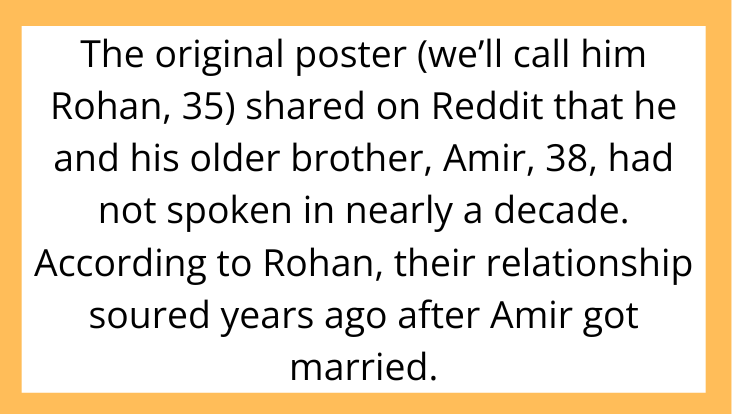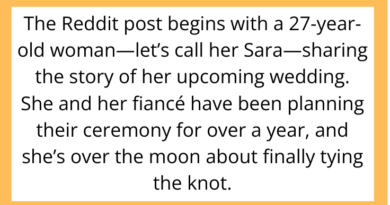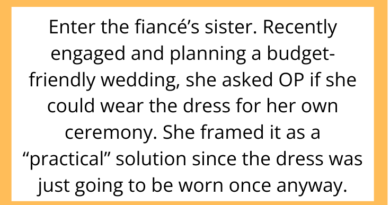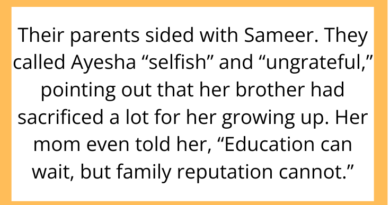AITAH for Refusing to Help My Brother Financially After He Cut Me Off for Years?
Family bonds are often tested by money, pride, and past wounds. In this emotionally charged AITAH story, one person is left wondering if holding their ground makes them heartless—or finally free from emotional manipulation.
Let’s explore what happens when estranged siblings suddenly need each other—and whether saying “no” makes you the villain.
The Background: A Sibling Relationship Gone Cold

The original poster (we’ll call him Rohan, 35) shared on Reddit that he and his older brother, Amir, 38, had not spoken in nearly a decade. According to Rohan, their relationship soured years ago after Amir got married.
“His wife didn’t like me. I don’t know why, but after their wedding, he stopped inviting me to family events. Stopped answering my calls. Eventually, I got the message,” Rohan wrote.
Despite trying to reach out a few times over the years, Rohan was shut out. Birthdays passed. Family gatherings came and went. Amir was always “busy.”
So Rohan stopped trying.
The Plot Twist: Now Amir Needs Help

Out of the blue, Rohan got a call. It was Amir.
His voice was shaky. His tone was different.
Amir had lost his job. His business had collapsed during a downturn, and he was in massive debt. He said he needed a loan to “stay afloat”—and Rohan was his last resort.
Rohan had recently sold a successful app and was financially secure. Amir knew this.
“I’m not asking for a handout,” Amir told him. “Just a little help. A loan. I’ll pay you back.”
Rohan was stunned. After years of being treated like a stranger, his brother was now asking for money?
He told Amir no.
The Fallout: Accusations and Guilt-Tripping

Amir didn’t take it well. He accused Rohan of being cold and unforgiving. He even said, “You’re letting money come between brothers.”
Their parents got involved. They didn’t deny Amir had been distant, but they urged Rohan to “be the bigger person.”
“He’s family,” their mother said. “Blood is blood.”
But Rohan stood firm. “He made it clear I wasn’t part of his life for years. I’m not an ATM now that he needs me.”
That’s when Rohan turned to Reddit with a simple question: AITAH for refusing to help my brother financially after he ignored me for a decade?
Reddit’s Verdict: Not the Villain
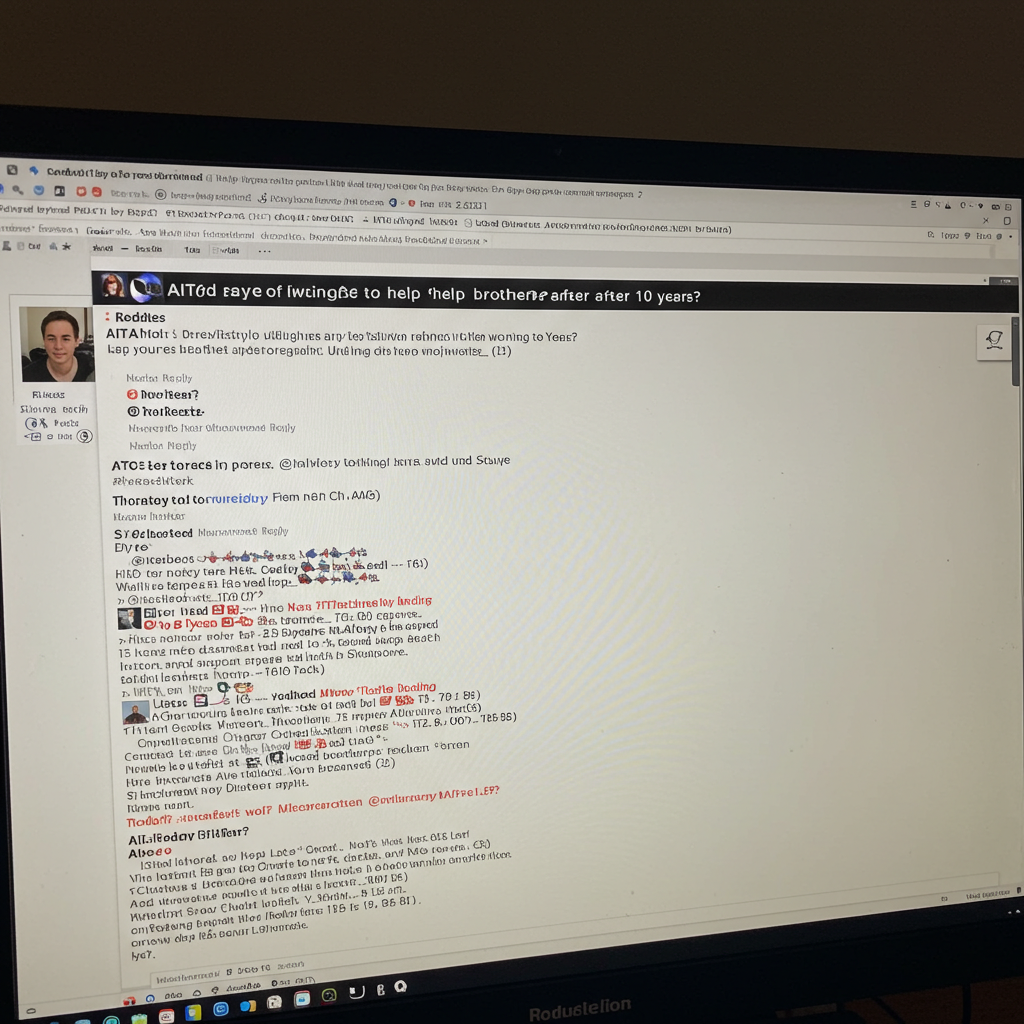
The responses came pouring in—and the vast majority sided with Rohan.
Top comment:
“He taught you your role in his life. You respected it. Now he wants to rewrite the rules. NTA.”
Many users pointed out that forgiveness and financial help aren’t the same thing. Rohan was under no obligation to support someone who deliberately cut him out.
Others suggested that Amir’s sudden change of heart seemed more opportunistic than genuine.
Another comment read:
“Sounds like he didn’t want a brother—until he wanted a bailout.”
Still, a few Redditors offered a more forgiving take.
“You’re not wrong. But if you do help—even a little—it could be a chance to rebuild something. Sometimes, people need a wake-up call to realize what they’ve lost.”
Family and Finances: A Messy Mix

This story resonates because many of us have felt torn between setting boundaries and helping family.
Money often exposes hidden fractures in relationships:
-
Are they reaching out because they care—or because they need something?
-
Is forgiveness tied to financial obligation?
-
Can trust be rebuilt without manipulation or guilt?
Rohan’s case is a clear example of how money, estrangement, and guilt can collide in painful ways.
Should Rohan Have Helped?

Arguments for Helping:
-
Maybe this was Amir’s way of opening the door again.
-
A loan with clear terms could help rebuild trust.
-
Family reconciliation, even if imperfect, can be worth the effort.
Arguments Against:
-
Rohan has no guarantee he’ll be repaid—or respected.
-
Amir didn’t apologize or acknowledge the hurt he caused.
-
Offering money now could validate years of exclusion.
Ultimately, this wasn’t just about finances—it was about being treated with dignity.
The Bigger Lesson: Boundaries Are Not Betrayal

Rohan’s decision to say no wasn’t heartless. It was a form of self-respect. Boundaries aren’t punishments—they’re how we protect our peace.
Being family doesn’t give someone a blank check, especially after years of silence. Rebuilding a relationship starts with accountability, not an ask for cash.
